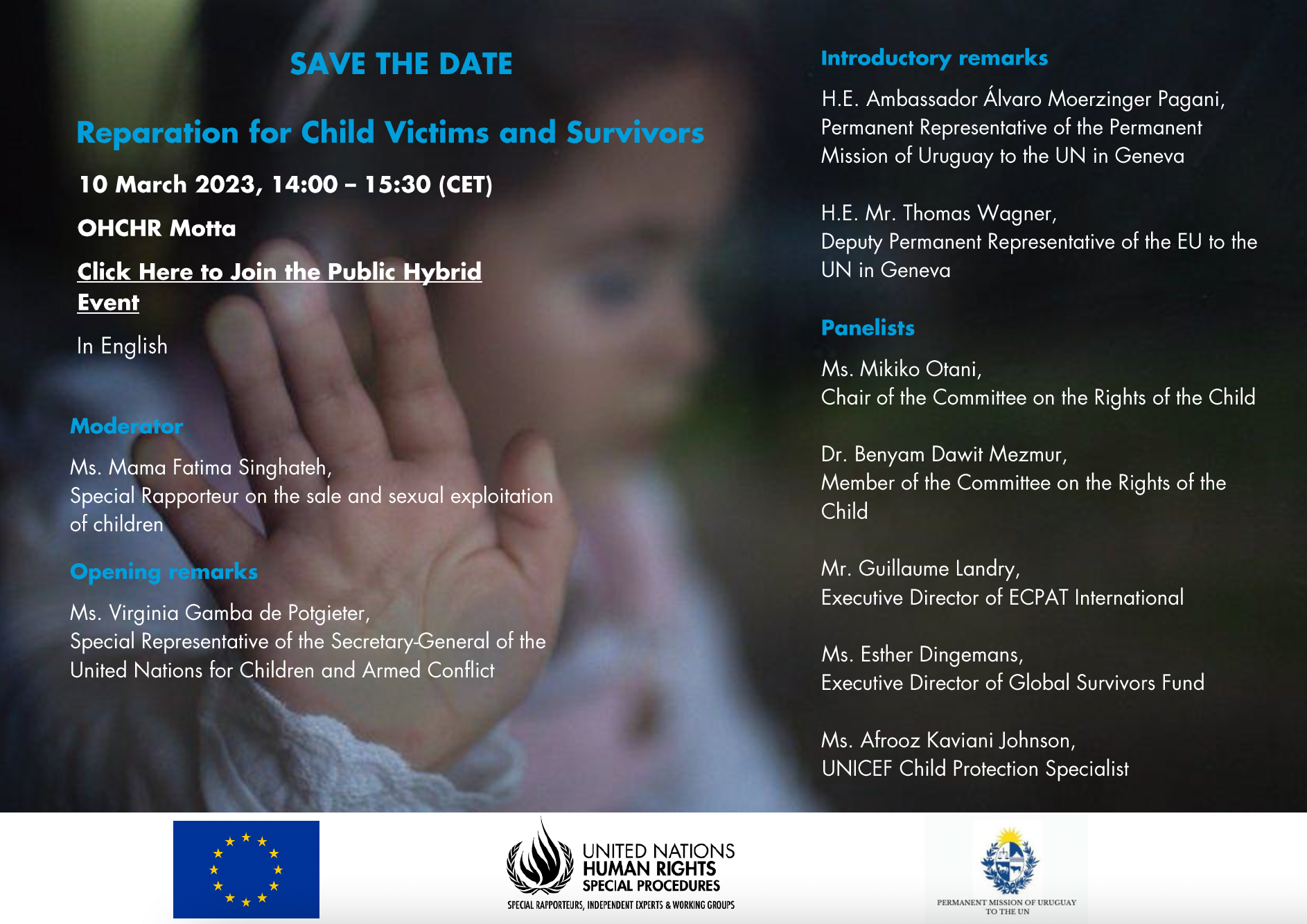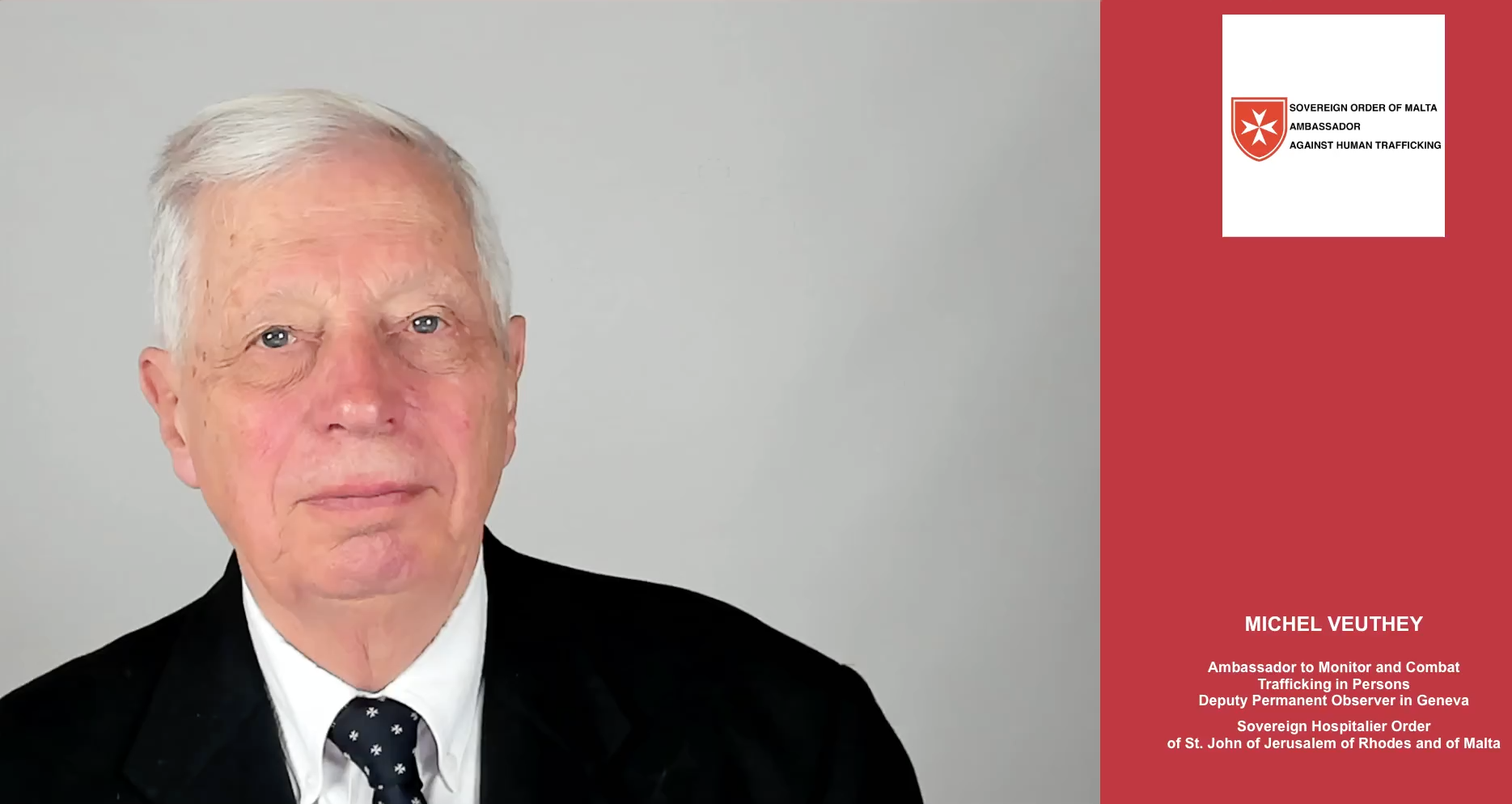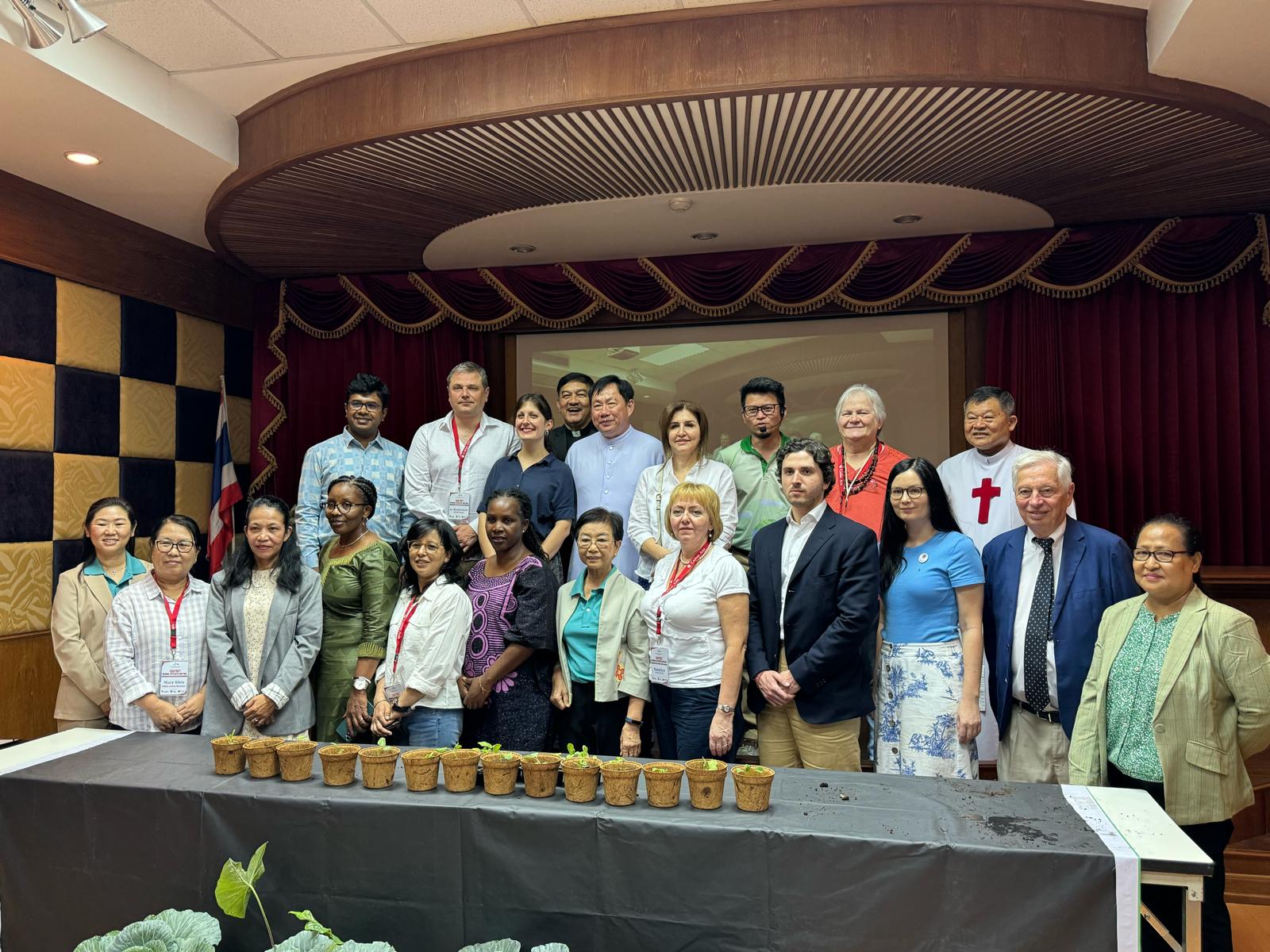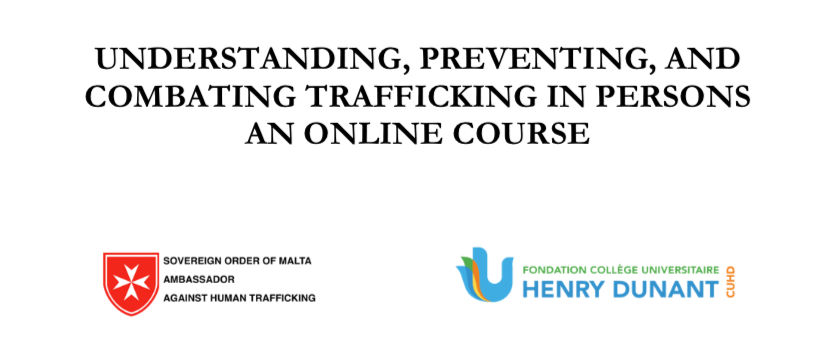On Friday, March 10th, 2023, a United Nations Human Rights Council side-event took place from 2:00-3:30 pm. This side-event was on Reparation for Child Victims and Survivors of Sale and Sexual Exploitation, and it was moderated by Ms. Mama Fatima Singhateh, a human rights lawyer and the UN Special Rapporteur. The meeting was attended by over 50 people, including the Ambassador of the Order of Malta to Monitor and Combat Trafficking in Persons, Professor Michel Veuthey, and many other representatives from States, inter-governmental organizations, and non-governmental organizations.
The opening remarks came from Ms. Virginia Gamba de Potgieter, Special Representative of the Secretary-General of the United Nations for Children and Armed Conflict. The Special Representative, who joined the side-event online, stressed the importance of both civil society organizations and States to develop and maintain a more victim-centered approach in their procedures on child victims and survivors of sale and sexual exploitation. She also discussed the need for victims and their families to have access to justice and reparations.
The introductory remarks were from both H.E. Ambassador Álvaro Moerzinger Pagani, Permanent Representative of Uruguay to the UN in Geneva, and H.E. Mr. Thomas Wagner, Deputy Permanent Representative of the EU to the UN. Both the Ambassador and the Representative speak about the need for integrated child protection systems within Europe. Mr. Thomas Wagner highlighted the need for increased cooperation and coordination in order to accomplish this goal.
The following individuals served as panelists for the side-event: Ms. Mikiko Otani, Chair of the Committee on the Rights of the Child, Dr. Benyam Dawit Mezmur, member of the Committee on the Rights of the Child, Mr. Guillaume Landry, Executive Director of Global Survivors Fund, Ms. Afrooz Kaviani Johnson, UNICEF Child Protection Specialist, and Ms. Grace Achan, survivor and activist from Uganda. These panelists emphasized the need for increased training for police officers, social workers, and lawyers to better understand how to communicate with victims and protect them from further harm.




